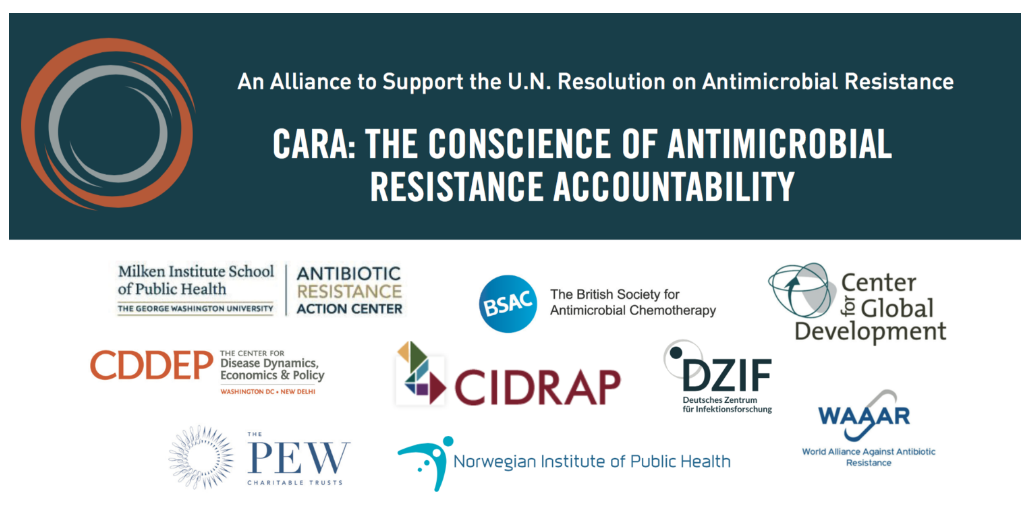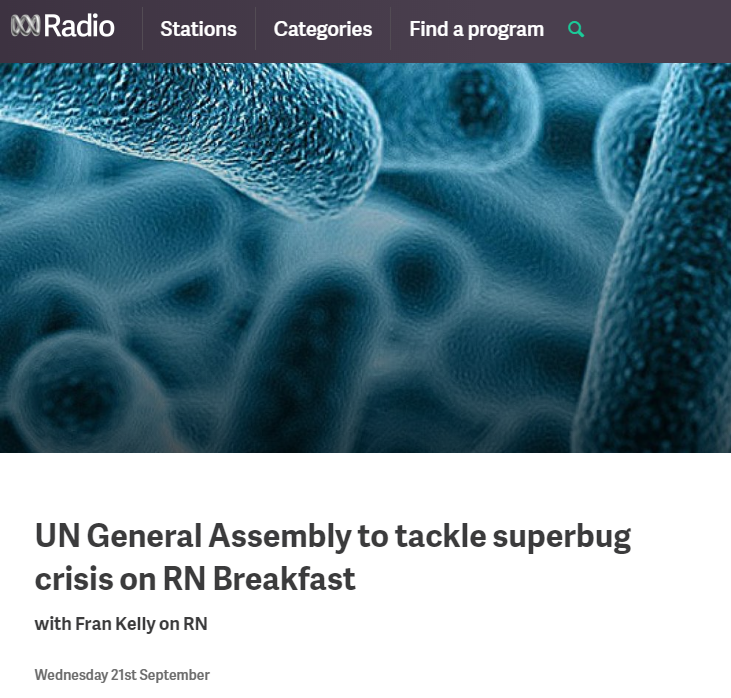UN General Assembly to tackle drug-resistant bacteria
On 21 September 2016, global leaders met at the the UN General Assembly for a one-day high-level meeting in New York on “Antimicrobial Resistance“. The meeting included Member States, non-governmental organizations, civil society, the private sector and academic institutions, in order to provide input.
The primary objective of the high-level meeting was to summon and maintain strong national, regional and international political commitment in addressing antimicrobial resistance comprehensively and multi-sectorally, and to increase and improve awareness of antimicrobial resistance.
Australian Government's Julia Bishop MP spoke as part of the opening remarks alongside global AMR advocate Professor Dame Sally Davies (Chief Medical Officer for England):
.@JulieBishopMP calls #UNGA work on #AntimicrobialResistance an import step forward. The world must come together to save modern medicine. pic.twitter.com/LzNXxR3BQK
— UKUN_NewYork (@UKUN_NewYork) September 20, 2016
Proud to be at #UNGA side event on Antimicrobial Resistance. It is vital to tackle this threat to the health & wealth of nations. #AMR pic.twitter.com/tjiwssAKEn
— Dame Sally C Davies (@CMO_England) September 20, 2016
The meeting emphasized the important role and the responsibilities of governments, as well as the role of relevant inter-governmental organizations, particularly the World Health Organization, in responding to the challenges of antimicrobial resistance. It highlight the essential need for multi-sectorial and cross-sectorial efforts and engagement of all relevant sectors of society - such as human and veterinary medicine, agriculture, finance, environment and consumers- to generate an effective response, including towards a one-health approach.
It further recalled the World Health Assembly Resolution WHA 68.7 entitled “Global Action Plan on antimicrobial resistance” which reflects a global consensus that antimicrobial resistance poses a significant public health challenge, and emphasizing the paramount significance of achieving the five strategic objectives of the WHA Global Action Plan.
The UN had only held a special session on a health issue three times before this AMR session:
- on the AIDS virus in 2001
- on non-communicable diseases in 2011
- and on Ebola in 2014.
In New York on 21 September 2016, global leaders signed a UN pledge - $790m (£606m) to fight drug-resistant infections. Earlier this year, Lord O’Neill called for a $2bn (£1.53bn) investment in global innovation funding to tackle AMR by 2020 following his review on the subject.
Every signatory of the UN declaration will agree to:
- Develop surveillance and regulatory systems on the use and sales of antimicrobial medicines for humans and animals
- Encourage innovative ways to develop new antibiotics
- Educate health professionals and raise public awareness on how to prevent drug-resistant infections
Watch the UN General Assembly high-level meeting on antimicrobial resistance - 21 Sept 10.00am New York - live here.

We welcomed the new initiative CARA: The Conscience of Antimicrobial Resistance Accountability - an alliance to support the UN Resolution on Antimicrobial Resistance - including key players such as The Center for Disease Dynamics, Economics & Policy (CDDEP), The Pew Memorial Trusts and The British Society for Antimicrobial Chemotherapy (BSAC).
They invite all organizations to become CARA partners - if you would like to join or would like more information contact them directly: Hellen Gelband gelband@cddep.org, Molly Miller-Petrie millerpetrie@cddep.org
CO-ADD's Matt Cooper was live on Radio National this morning to discuss the UN General Assembly to tackle superbug crisis with ABC Fran Kelly. Listen to the show live here.
If you're interested in hearing these experts talking at the UN General Assembly on the topic of AMR join us for Solutions for Drug-Resistant Infections (SDRI 2017) conference in Brisbane, Australia 3-5 April. Plenary speakers include UK Chief Medical Officer Dame Sally Davies and CDDEP Professor Ramanan Laxminarayan. If you're not in New York follow the meeting using the twitter hashtags below!
World leaders at #UNGA discussing antimicrobial resistance today (Sept 21). Follow #CombatingAMR #antibioticresistance #AMR #ActOnAMR
— CO-ADD Antibiotics (@COADD_news) September 20, 2016

